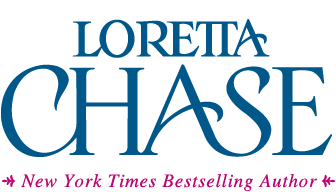
I’m just back from a writers' conference, which reminded me, once again, that I have one of the best jobs in the world. My personal favorite best job ever of my whole experience was being an English major in college, which is at least partly because of the Lack of Responsibility Factor. But being a writer definitely qualifies as a Best Job.
I have had worse jobs, believe me.

As some of you already know, once upon a time, many, many eons ago, I was a meter maid. People screamed at me, made fun of me, and some even threatened me with bodily injury. The downtown characters--the drunks and extremely demented people--raved at me or demanded money or insisted I arrest figments of their imaginations. We had to wear polyester--and this was the old style polyester that did not breathe at all--and we courted heatstroke in the summer and frostbite in winter. Downtown Worcester, wherein lay our “beats,” is small but very hilly. In the beginning especially, I ended the day with aching legs and feet so sore I wept . I wore the ugliest possible shoes for the comfort factor. No matter. I still got blisters. I got sunburned and windburned and broke out in mysterious rashes. When people fought their tickets, I had to go to court, which terrified me. And I had to communicate with police officers almost daily. I was in one of my college dropout phases at the time (these went on for about a decade), and in those days college youth tended to view the police with extreme mistrust. Trusted or not, they were a species of which I had no experience, let alone understanding. For me, it was like talking to Extra Terrestrials, all of them heavily armed and some of whom thought meter maids a far lower and more repellent life form than the drunks & crazy people.
This, however, was not the worst job I ever had, not by a long stretch. I actually kind of liked it a good part of the time because our bosses and the office staff were really nice and the other meter maids were fun to hang with. Bonus: Within a few months, I was in amazing shape. With very strong legs.

The worst job I ever had looked really glamorous. I was hired to sell groovy clothes and shoes in a boutique. I loved fashion magazines, so this seemed to be the ideal job for moi, at the time, a college dropout (again). But as those who’ve watched the reality shows know, what goes on behind the scenes is not always pretty. I got blisters from having to wear fashionable platform shoes for 8-10 hours a day on a concrete floor thinly covered with carpeting. We had to climb up and down ladders while carrying stacks of jeans for the shelves. We used seam rippers to take out the manufacturer’s tags from the clothes and then we hand-stitched in the store’s tags.

But hey, I worked in a jewelry store over the course of several years, and learned the art of writing codes & numbers on price tags barely visible to the naked eye (the kind that went on expensive jewelry of the type my heroine in Your Scandalous Ways would wear). That was tedious, too, but I didn’t mind. It appealed to the fussbudget (now called OCD) in me. I don’t mind detail work. It’s retail that gets to me.
The problem, in short, was Dealing with the Public for 6 days a week, 8-12 hours a day. I’m not an extrovert. In fact, others would find it a considerable challenge to be less extroverted. My Personality Type came out INTJ--at 93% Introverted. Let’s add in the facts that I was still more or less college age (read Immature) and had an Attitude. So I didn’t deal really well with people who needed size 12 and insisted something was wrong with the clothes I was selling because size 8 didn’t fit or the ones who tried on ninety-eleven sweaters only to leave with nothing, telling me the clothes were too expensive or the ones who flung silk blouses on the floor for the menials (us) to pick up, etc., etc. Then there were the shoplifters. And the drunks & crazy people who wandered in, thinking we were--what? The bus station?

Plus, I really didn’t have confidence in my ability to put the right shirt together with the right tie, so I always had a small panic attack when I had to wait on a male person, even though they were less likely than female persons to infuriate me. Too, we had to keep the place shipshape, folding clothes, endlessly folding & even ironing. We had to keep the glass display cases sparkly clean and dress up the dummies. Then there was the behind-the-scenes backbiting and stabbing and alliance-shifting. All of which happens everywhere, but for some reason it felt more like Purgatory there. Looking back, with the advantage of age and wisdom, I think it was simply a matter of a horribly wrong personality fit.

It was useful in terms of giving me a degree of understanding of what it was like to be a servant in early 19th C London.
But it was MY WORST JOB, ever.
Meanwhile, there are those, I know, who’d run screaming from my present job: Sitting alone all day in front of a computer listening for voices in your head? There are people who couldn’t, wouldn’t do it. They are not tempted, even though it means not having to wear pantyhose and being able to work in one's pajamas.
My best job could be your worst job and vice versa.
RevMelinda won a Loretta Chase book because she asked the question, “What was the worst job you ever had?” And I answered it.
What was your worst job ever?
Originally posted at Word Wenches.









